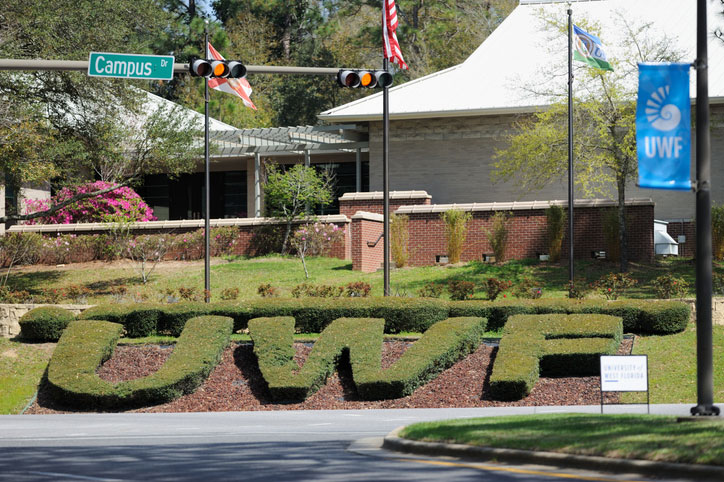Written by Scott Wilson

For most people graduating from MSW degree programs in Florida today, doing a two-year stint as a Registered Clinical Social Work Intern (RCSWI) is the next stop on the path to licensure.
The interim RCSWI license is not required for anybody going for the non-clinical master’s-level license in Florida — the Certified Master Social Worker (CMSW)…
But becoming a Licensed Clinical Social Worker (LCSW) in the state takes two years of supervised clinical practice. And since no one is allowed to offer clinical social work services in Florida without a credential, the RCSWI is there to provide the provisional authority needed for LCSW candidates to get that experience.
The need to gain real world clinical experience in order to qualify for the LCSW while there’s restrictions on practicing clinical social work without a license is the exact problem the RCSWI is designed to solve.
The RCSWI registration process is where the Florida Board of Clinical Social Work, Marriage & Family Therapy and Mental Health Counseling validates your education and initial qualifications. Once you’ve been registered and granted the RCSWI credential, you’re officially able to deliver clinical counseling services under the general and direct supervision of a state-licensed LCSW — every from assessment and diagnoses to psychotherapy and other behavioral treatments.
That period of real-world supervised experience is your final proving ground for developing and demonstrating you have the clinical skills to be eligible for LCSW licensure.
For currently licensed LCSW social workers coming to Florida from other states and seeking licensure by endorsement or who have already documented two years of post-master’s supervised experience in some other way, becoming an RCSWI is not necessary. But for most graduates from Florida MSW programs, this is going to be your next step on the path to full and independent clinical licensure.
What’s the Difference Between a Registered Clinical Social Work Intern and a Licensed Clinical Social Worker?
First, the RCSWI is exactly what it says—a registration. It’s not a license to practice and doesn’t give you independent practice authority. Instead, the clinical practice authority under which your clients are being treated, even when you are the one delivering it, ultimately rests on your supervisor’s license.
The RCSWI is an official acknowledgment from the Florida Board that you are a candidate for LCSW licensure. For MSW graduates who are going straight toward clinical licensure, you can look at the RCSWI as simply the first step in the longer process of earning an LCSW license.
Because the RCSWI is limited, so are your practice options.
You’re not allowed to perform clinical social work without a Board-approved qualified supervisor overseeing that work. That’s a big difference from the LCSW, which allows fully independent clinical practice authority.
Apart from that critical period of on-the-job experience, though, you become an RCSWI with the same kind of education and practicum behind you as a Licensed Clinical Social Worker. So as an RCSWI, you already have the full set of knowledge-based skills needed to diagnose and counsel clients— you just need a couple years of practice and guidance to refine those skills.
Qualified Supervision for Your Registered Clinical Social Work Internship
 Florida is part of a trend in social work licensing and training to up the standards of clinical oversight. Not just any LCSW is allowed to perform clinical supervision for a Registered Clinical Social Work Intern. Instead, only those who have undergone extra training and have higher continuing education requirements are allowed to become Qualified Supervisors.
Florida is part of a trend in social work licensing and training to up the standards of clinical oversight. Not just any LCSW is allowed to perform clinical supervision for a Registered Clinical Social Work Intern. Instead, only those who have undergone extra training and have higher continuing education requirements are allowed to become Qualified Supervisors.
Qualified Supervisors are required to have at least four years of clinical social work experience under their belts. They also have to go through post-graduate training in supervision through either a graduate-level course (local schools of social work may offer these as stand-alone classes), continuing education, or post-graduate training for field instructors affiliated with or approved by the Florida Board.
It’s also possible to become a Qualified Supervisor without actually being a social worker. Properly trained and credentialed psychologists, psychiatrists, mental health counselors, and Marriage and Family Therapists (MFTs) can also serve as supervisors in Florida. For example, the American Association of Marriage and Family Therapy offers a supervisor designation recognized by the Florida Board of Clinical Social Work, Marriage & Family Therapy and Mental Health Counseling. To qualify, MFTs need at least 9 semester hours in social work instruction from a CSWE-accredited graduate school, covering six specific content areas.
Qualified Supervisors also have to work to keep that status, with at least four hours of CE every third renewal period that are focused on QS training. Altogether, it means you can count on your supervisor to meet the highest state standards as you go through supervision as a social work intern in Florida.
How To Become a Registered Clinical Social Work Intern in Florida
You register as a clinical social work intern through the state Board website, just as you will eventually apply there for the LCSW. The steps are very similar, but there are a few differences.
First, you can apply while you are still a graduate student, with the expectation that you will complete the remainder of your coursework while building hours as an intern.
Second, there are various final educational requirements needed for the LCSW that don’t need to be completed before you become an RCSWI.
It’s possible to submit an application and update it along the way as you check off the various requirements. If you are in a hurry, you can clock the several weeks it takes to process the app at the same time you are working to line up supervision and a work placement.
1. Earn a CSWE-Accredited MSW with a Focus in Clinical Social Work
You’ll need to have your MSW transcript submitted directly to the Board by your school, showing the necessary graduate-level coursework from a CSWE-accredited program.
That means it has to include at least 15 semester hours of study in clinical services including psychopathology, theories of human behavior, and clinical practice methods. Ultimately, your MSW has to include 24 hours, but you can start as an intern before completing all of those hours.
Any CSWE-accredited master’s program can fulfill this requirement, whether a local campus-based option or online MSW. There are 12 clinically-focused MSW programs offered by public and private universities based in Florida, including programs offered in hybrid and online formats:
- Barry University - Department of Social Work
- Florida Atlantic University - Phyllis and Harvey Sandler School of Social Work
- Florida Gulf Coast University - Department of Social Work
- Florida International University - Robert Steeple College of Public Health & Social Work
- Florida State University - College of Social Work
- Saint Leo University - College of Health Professions
- Southeastern University - College of Social Sciences & Humanities
- University of Central Florida - School of Social Work
- University of South Florida - School of Social Work
- University of West Florida - Usha Kundu, MD College of Health

2. Complete Supervised Practicum Placement as Part of Your MSW Program
You will also need a letter from an official of your school of social work that verifies that you completed a supervised field placement, including delivering clinical services directly to clients, as part of your studies.
If you are in or have graduated from an advanced standing MSW program, you may need an additional letter that verifies that the coursework you completed in your BSW program to qualify for advanced standing.
3. Line up Qualified Supervision for Your Internship Placement
The most challenging part of the RCSWI application process may be finding a placement and finding a qualified supervisor to agree to oversee your work.
Making life a little easier, these two things don’t have to happen at the same time and don’t need to be in the same place. You can be supervised by an LCSW working for a different organization entirely, as long as the two of you can work out a way to complete the supervision requirements. Since that can include electronic methods, like Zoom, physical distance isn’t necessarily a big obstacle.
Your biggest concerns will be finding a supervisor who you connect with and who shares your field of specialization and interests.
The Board provides an up-to-date list of official Qualified Supervisors linked right on the RCSWI application page, but it can be a bit clunky and unintuitive.
Another resource, however, is the privately run website Meet Your Supervisor, put together by South Florida’s MDM Counseling and Mediation Services. It’s an online matchmaking site for interns and supervisors, which includes far more information about potential supes, including:
- Work location
- Degree and certifications
- Clinical background
- Areas of interest
- Contact information
They even have headshots so you can see who you are getting in touch with.
There are debates within the social work and larger counseling community about the ethics of paying for clinical supervision; be sure you understand the risks before engaging a private supervisor.
However, it’s also possible that if you find a position with a large organization to perform your two years of internship work, supervision may be part of the package. While you are on the hook to pay for a private supervisor individually, qualified supervisors working at the same agency are generally compensated by the organization itself.
A Break-Down of How Your Supervised Hours Will Be Spent as an RCSWI

Once you have become a Registered Clinical Social Work Intern, you can look forward to at least two years of actual, effective, fulfilling clinical social work ahead of you. It’s exactly the same kind of work that you will take on as an LCSW, with the same types of clients, the same challenging situations, the same critical solutions.
The biggest difference is also the most important: you will be doing it under the watchful eye of a Qualified Supervisor. And that’s a key part of the steps necessary to earn that LCSW license.
It’s important to note that your clinical supervisor may not be the same person or position as the administrative supervisor for your internship, particularly in smaller organizations.
The supervised work requirements required by the Board are straightforward:
- Complete at least 100 hours of supervision in no less than 100 weeks
- Engage in 1,500 hours of face-to-face psychotherapy with clients
- Undergo a minimum of one hour of supervision every two weeks
All of these details will be documented on the Board Verification of Clinical Experience form, either on paper or electronically. You’ll need to submit the completed form only when you are finally ready to apply for your LCSW, but it’s a good idea to keep track of your experience along the way to avoid any unpleasant surprises.
It’s also possible to change your Qualified Supervisor if for any reason you need to switch during your internship years. The process is exactly the same as lining up the initial supervisor; submit a letter from the new supervisor to the Board and receive an approval. You will also want to have your former supervisor submit a removal request to avoid any confusion.
How Clinical Supervision Works in Social Work Licensing in Florida
Clinical supervision itself is basically a process of review and feedback. It’s not unlike mentorship, although your clinical supervisor is technically responsible for your patients as long as you are an RCSWI.
During your supervision hours, you can expect to:
- Present your current case load to your supervisor
- Go over notes, assessments, and treatment plans from your client meetings
- Highlight any particular challenges you are facing in your work
- Discuss your own state of mind and self-care regimen
- Receive feedback on your plans, advice on different approaches that you may take, and hear other perspectives on cases
It’s basically an ongoing educational experience, designed to hone your theoretical education as an MSW graduate through gradual, ongoing real-world applications supported by a trained and accomplished professional.
Two years goes by quickly in a high-intensity job like social work, but you’ll take the lessons you learn in your registered internship through the rest of your career in the field. And once you have completed your time as an RCSWI, you’ll be ready to move on to the world of independent practice as an LCSW… and perhaps eventually becoming a supervisor of registered interns yourself.
